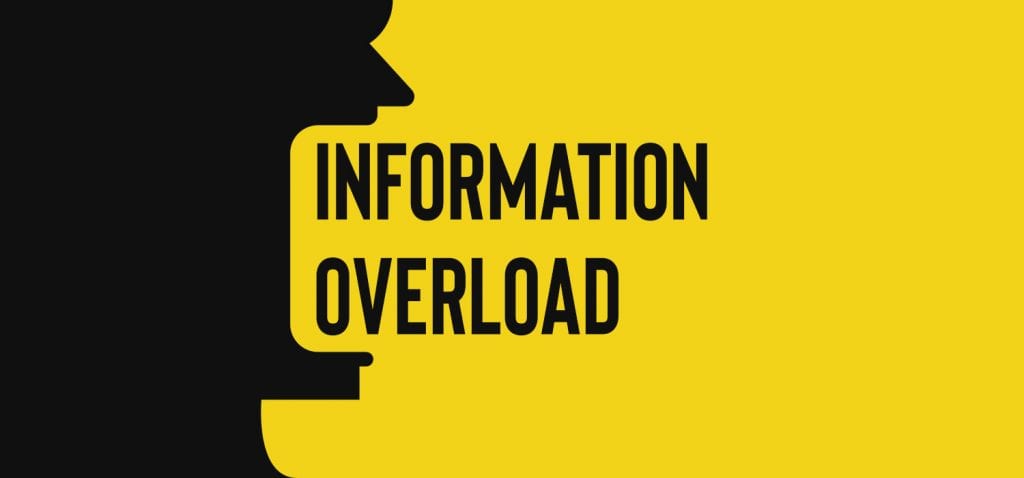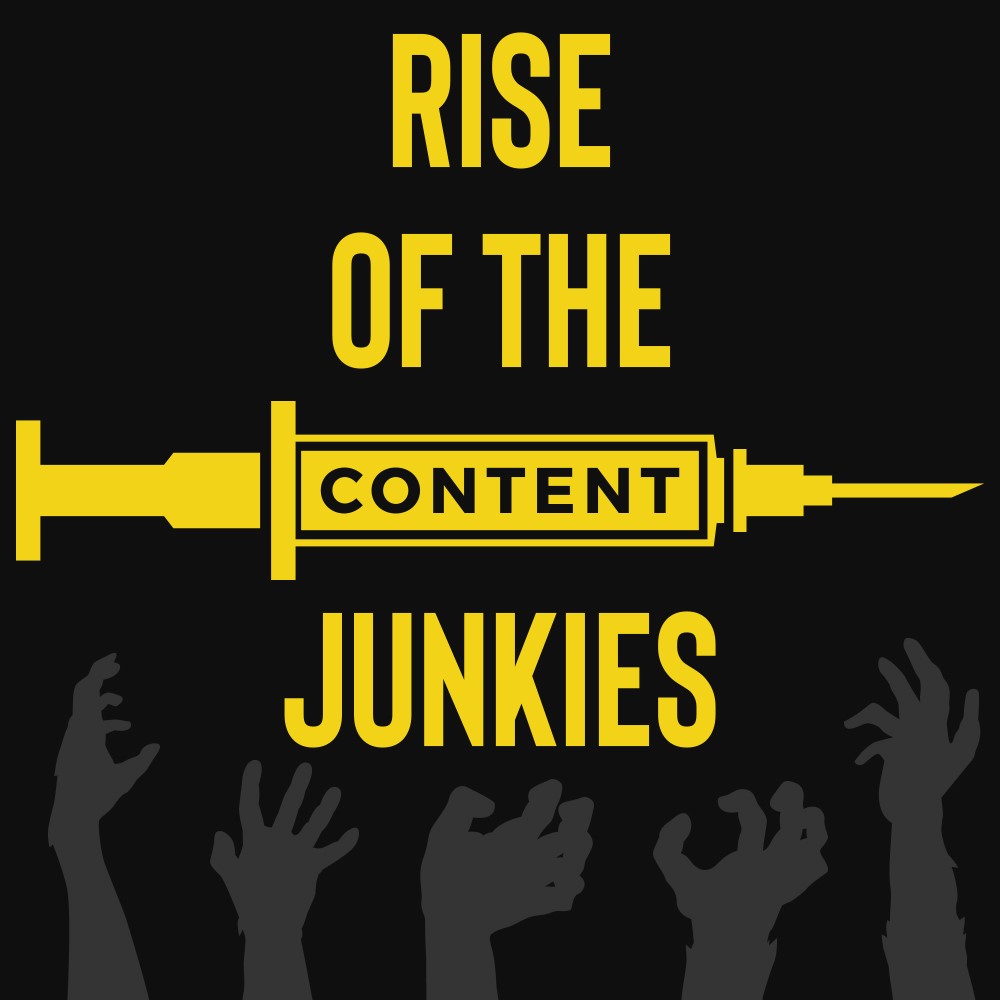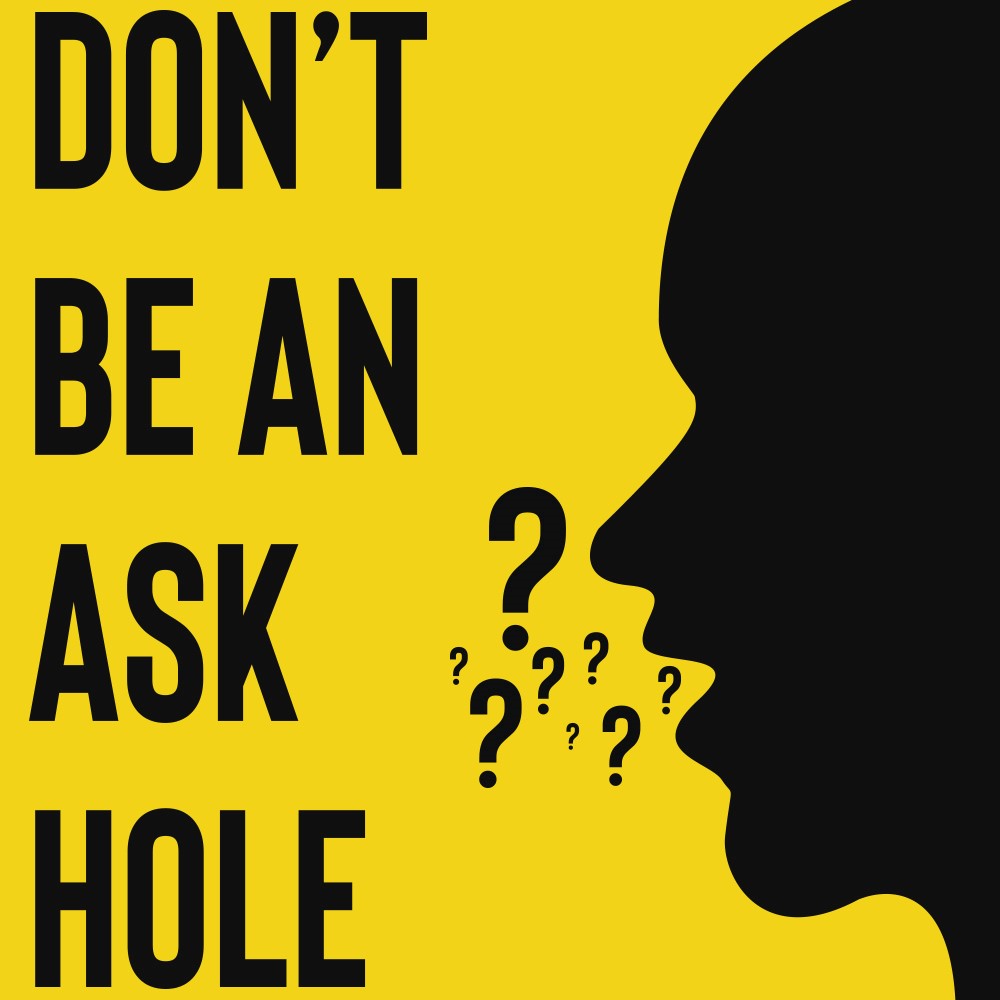“Calories and information are identical …”

When I heard Penn Jillette say this on a recent episode of The Joe Rogan Experience podcast, I leaned in, tilted my head, and raised my eyebrow in curiosity. Jillette noted that for most of human history, “the biggest problem every animal had was too few calories. And then for, what, maybe 75 years, a very small percentage of the animals has this problem with too many calories. And there’s nothing that prepares anybody for that.”
Jillette then argued that we currently have the same problem with information overload. He pointed out that “we now have more information in one issue of The New York Times than a 17th century peasant would have had in their entire life.” Though I disagree with much of what Penn Jillette and Joe Rogan say about all kinds of issues, I believe they’re right about this one. There are many benefits to living in the Information Age, but there are also some detrimental consequences.
Without getting too philosophical, I want to point out how this great gift we’ve been given can also be a problem – specifically as you seek out resources to grow your business. But before I begin, a few preliminary points of positivity (for clarification):
- I love living in the information age. The fact that we have (literally at the tip of our fingers) access to answers for pretty much any question we have boggles my mind daily. I take advantage of this access every day and have no plans of stopping.
- We now have access to the minds of the best teachers in the world. It’s incredible that I can see, in almost real time, what the people who inspire me are doing, working on, thinking through, and teaching about. Books, blogs, podcasts, YouTube channels, and social media platforms have given us the ability to share and consume ideas from the most brilliant people alive. We should take advantage of this.
- I believe consuming content and learning new things is critical to starting, growing, and managing your business. In the book Beyond Disruption, Jean-Marie Dru builds the case that you should always be thinking of ways to put yourself out of business before your competition does. Remember, your competition has access to the same information you do. If you are not actively trying to “engineer disruption” (as Jean-Marie Dru puts it), then you are destined to be disrupted. One of the ways to stay ahead of the curve is to know where the curve is – what people are saying and doing today.
So no – I’m not anti-content-consumption. However, I’ve observed (in myself and others) at least three pitfalls to avoid as it relates to consuming information (or content, as I’ll be referring to it). If you avoid these pitfalls, you’ll get the best return for growing yourself and your business.
1) Beware – Everyone’s a Guru
When I was 23, I’m pretty sure there were a couple times I gave some solid marriage advice (surely gleaned from the wisdom of those who had mentored me in my marriage). However, having been married for only a year, I would not have had enough experience to label myself an expert on the subject. Though I could have given some sound advice, those who came to me for help would have been much better served going straight to the mentors I learned from.
It’s the same with business content. Many of the courses and content I see from today’s “gurus and experts” are coming from those with very little (or short-lived) business experience, and most of them are borrowing and repackaging concepts from stuff that was produced long ago – by those with much more fruit on the tree. But because they’re outgoing, have charisma, and can articulate the concepts in a youthful (and maybe more appealing) way, they have built massive audiences for themselves.
With experience and longevity comes a weight of wisdom that young bucks just don’t have – no matter how charismatic or articulate they might be.
(NOTE: I’m keenly aware that I’m writing this as a (generally) young entrepreneur who is building an audience, selling courses, and still learning from those who have come before me. My point is not that you should ignore all “experts,” but that you should observe and be selective in who you trust.)
2) High Volume Is Often Low Quality
Because we have so many options for consuming content, creators are expected to put out as much content as possible. This can be great, and this can be terrible.
Take, for example, the evolution of journalism. Journalism used to be about finding a story and reporting on it factually, including as much evidence and supporting data as possible. This requires resources, research, and often, a lot of time.
However, in an age where anyone can post any incident on Facebook Live, reporting is not about what’s best or true anymore. It’s about who can post content first, and who can post the most.
So it is for content creators. With influencers like Gary Vee telling us to put out as much content as possible, and Grant Cardone telling us that “there is no such thing as posting too much content,” creators and entrepreneurs are definitely feeling the same pressure to push out content. I’ve read at least two books and taken one course that advocated for sending daily marketing emails. However, I’ve observed that with an abundance of content comes a compromise in quality, and the presence of content-fatigue in your audience. Think about it – is there anyone you are happy receiving daily marketing emails from? Is there anyone you know of who can give sound, actionable wisdom and advice each day?
I’ve noticed how brands I once respected and looked to for answers have been cheapened (in my own estimation) because they’ve bought in to the fallacy that in order to remain “relevant,” they have to put out as much content as possible. Subsequently, those brands put out a lot of repeat content (the same stuff, just stated a little differently), as well as a lot of fluff (it’s content, but it’s not really helpful). Because of this, when I see their content now, it’s devalued – and I typically ignore it. So from a strategic standpoint, from the perspective of the content creator, putting out as much content as possible definitely has its benefits (you can build a large audience and get lots of engagement). However, from the standpoint of the content consumer, it’s not actually helpful to watch every video Gary Vee puts out.
(I like Gary Vaynerchuck, btw. Sorry, Gary.)
I’m not saying that people with lots of content always have low quality content. Many people know that Chris Do from The Futur is one of my mentors. Chris put out content almost daily. However, he is one of the only voices operating in his niche, and most of his content responds to questions coming from his audience. In other words, there’s a high demand for the content Chris is putting out, and low supply.
So, what am I saying? I’m suggesting that you seek out content creators who are thoughtful, strategic, and helpful – not necessarily the ones with the most content or the biggest audiences. Don’t just be a content junkie, reaching out for any bit of content you can find to get your fix.

(NOTE: As an example of creating more thoughtful, helpful, and strategic content, I think of people like my friend Matthew Encina, who grew his YouTube channel to 55k subscribers with only 1 video that had over 2.7 million views. Some would say that his case is an anomaly, but in my interview with him, he shares that his content’s success was much more calculated than you might first suspect.)
3) High Intake Is Often Low Impact
I love reading Biblical Psalms. They’re chalk full of ancient Hebrew wisdom and poetry. When I’m in a reading flow, sometimes it’s easy to read past something very profound. The Psalmists understood this, which is why they implemented a literary tool throughout the book. Whenever you see the word “Selah,” it’s a visual cue to pause and reflect. (You first see this in Psalm 3, in case you were wondering.)
This is one of the reasons why I’m a slow reader. I hear of people taking the challenge to read a book a week, and I just can’t relate. When I read, I tend to reflect, analyze, think through the implications, draw out analogies that might help me remember, and contemplate different ways in which I might apply the content to my life. With the abundance of content and no lack of recommendations from credible sources, I’ve built up what seems to be a never-ending queue of books and resources that I need to eventually work through. This well take me some time, and that’s okay. I understand the FOMO that comes with thinking you need to watch that video now, or read this book tomorrow. However, I’ve found that I get much more value out of taking my time consider a single big idea, than to skim the surface of many smaller ones.
I remember talking with Chris Do about another friend he was coaching. We’ll call him Adam. If there’s one thing to know about Adam, it’s that he’s a doer. Chris would say that he and Adam would be 15 minutes into a coaching call, and Adam would cut him off, saying “Okay, stop! You’ve already given me enough to do. Let me try it, and we’ll get back in touch.”

1. one who constantly asks questions (specifically for advice) with little-to-no effort or intention of applying the answers that are given.
2. a bottomless pit of content consumption with no application.
In other words, Adam wasn’t an Ask Hole. He was strategic about the advice he was getting and content he was consuming, knowing that everything should lead to action. We need to take the same approach to the content we consume. If you haven’t applied the takeaways from the last 5 pieces of content you found, why are you consuming more?
Again, quoting the Bible: “But be doers of the word, and not hearers only, deceiving yourselves.” (James 1:22) In context, James is talking about consuming Biblical truth. However, there’s an application in that verse for the content we consume. The more we consume without doing, the more we are susceptible to deceiving ourselves – thinking we’re being productive when we’re not.
(NOTE: Adam killed it in his agency, btw.)
Okay, I’m Off My Soapbox
To repeat – I LOVE living in the information age. However, just as with all good things, overindulgence can be detrimental. Here’s my prescription:
- Consume content deliberately – with a particular purpose in mind.
- Consume content strategically – knowing what you hope to get out of it at the end.
- Consume content selectively – not succumbing to the temptation to consume everything, even from your favorite creators.
- Consume content reflectively – taking time to pause and digest the content so it sticks.
- Consume content actionably – with the intention of applying the content to your life.




